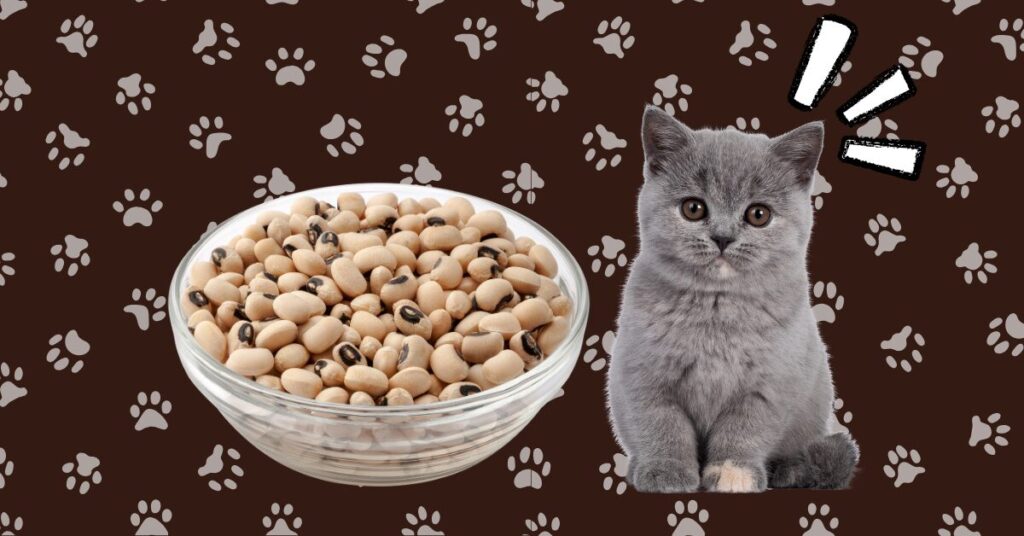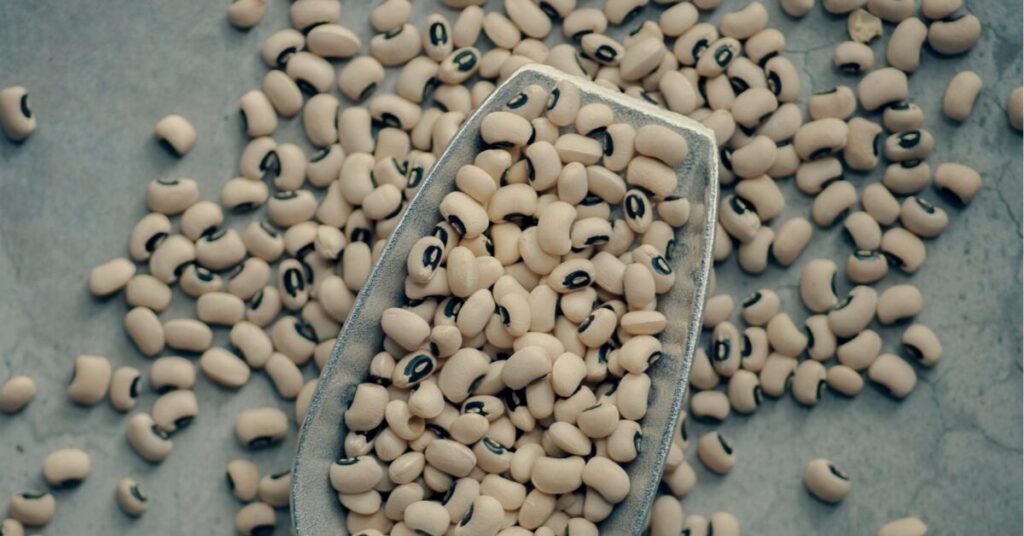
What are Black-Eyed Peas?
Understanding Black-Eyed Peas
The black-eyed peas which are also referred to as cowpeas are a variety of legumes and are popular owing to their profound flavor and richness. They are predominantly cream in color but have a unique black colored eye. They’re used in soups, stews, and salads among other dishes. Nutritively, it contains protein, fiber, vitamins, and minerals which make it a crucial component in different diets.
In addition, these legumes carry cultural importance as well which includes Hoppin’ John, a prominent Southern New Year’s meal which is thought to be good for wealth expansion. However, we are not talking about wealth expansion today. We’re inquiring whether Mr. Whiskers can have these small healthy snacks or not.

Can Cats Eat Black-Eyed Peas?
Analysis of Ingredients
When considering black-eyed peas, it’s important to analyse their components.
Protein Content
Black-eyed peas are good vegetarian sources of protein; however, cats do better with proteins derived from animals. The protein that plants provide does not come close to the protein that is derived from meat, which has all the amino acids that a cat requires.
Fiber Content
Fiber can improve a cat’s gastrointestinal function. However, excessive amounts of fiber that black-eyed peas contain can sometimes be harmful. In general, a high content of fiber derived from plants is not good for a cats system which means extra time and effort in maintaining their litter box!
Additional Nutrients
Black eyed peas have vitamins and minerals, but they are not exactly what cats require. The elements present in these peas do not correspond to the biological needs of felines, hence, they are of minimal nutritional value to your pet.
Risks of Feeding Black-Eyed Peas to Cats
Specific Concerns
Digestive Issues
Gastrointestinal distress may occur when cats eat black-eyed peas. Other side effects can include diarrhea, gas, or abdominal bloating.
Nutritional Imbalance
Feeding your feline plenty of black-eyed peas on a regular basis in the long run could cause an imbalance in their diet. It is well known that meat is the source of all nutrients necessary for a cat. Plus, a diet that is rich in leguminous vegetables may also disrupt that balance which is detrimental to their health as a whole.
Toxicity Concerns
Though black-eyed peas are not poisonous, they do pose a risk because they are frequently served with other ingredients such as garlic or onion. These ingredients can be harmful and can result in symptoms such as vomiting or lethargy. Never forget to look out for such signs and be quick to act.

What to Do If Your Cat Eats Black-Eyed Peas

Immediate Actions
If ever your kitty appears to be showing interest in your black-eyed peas, don’t get worried at all. To begin with, take away the remaining peas to avoid further consumption. Observe your cat to check if there are any signs of vomiting or diarrhea. In case any symptoms interfere, it is advisable to consult a veterinarian.
Ongoing Care
It is advisable to watch your cat closely and check their behavior after the occurrence. Observe their eating, drinking and normal day to day activities. Check ups with the vet regularly helps to promote the welfare of your feline.
Nutritional Needs of Cats
Essential Nutrients for Cats
First of all, it must be understood that cats are obligate carnivores, which indicates that they eat only animal protein. They have a constant need for nutrients that include fats, proteins, vitamins and minerals. For example taurine, arachidonic acid, vitamin A and vitamin B12 are essential nutrients which are included in meat which makes it a good diet for cats.
For instance, some meats and some commercial feline diets which are readily available in the market are safe for cats but before moving to these points it is important to remember not to get too curious about exploring different types of food for your pet as it is the nutritional balance that matters.
Foods to Avoid
Some foods meant for humans are very dangerous for cats. Eating chocolate, onions, garlic, grapes and certain nuts can be harmful for your cat. They can cause vomiting, diarrhea and more.
Safe Treat Alternatives
Store-Bought Options
When satisfying your kitty’s chewing habits, make sure to buy them cat-specific products as they are made according to their diet. and are often times recommended by vets. Greenies, Temptations are some of the Brands offering cat-friendly thin bites that cats absolutely adore.
Safe Human Foods
Some people’s foods are okay for cats to eat. Plain, small pieces of cooked chicken, chunked fish (tuna mostly), and also pumpkin can be given but only sometimes and in small amounts. These foods are nutritious yet do not alter the balance of the diet too much. Just bear in mind to remove any spices or additives when making these foods for cats.
Recap of Key Points
So, to conclude the information presented above; cats should steer clear of black-eyed peas as they can do more harm than good. As for humans, cats too need to maintain a proper diet as this is a great way to keep them healthy. It’s best to take into consideration your pet’s eating habits whenever you’re thinking about adding new flavors.
Final Thoughts
Keep in mind, the health and nutrition of the cat largely depends on the knowledge of its owner. When unsure on matters of incorporating a certain diet, seeking a professional veterinarian would be an ideal option. Embrace knowledge and seek to keep your pet healthy with the right dietary intake.

